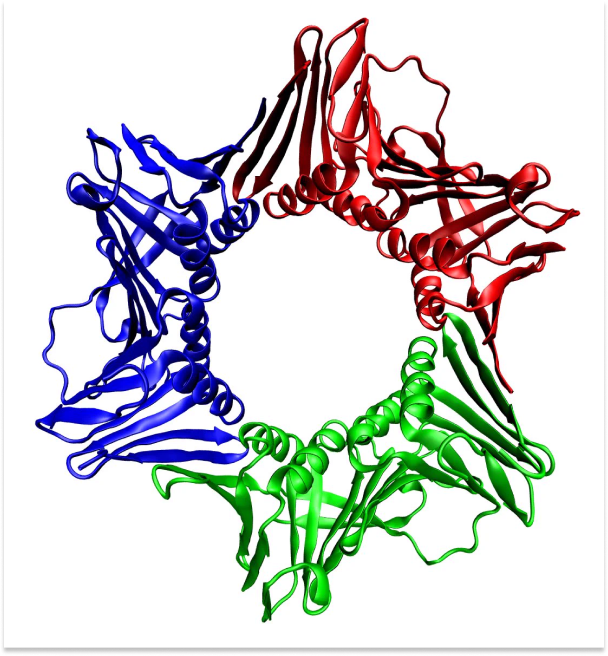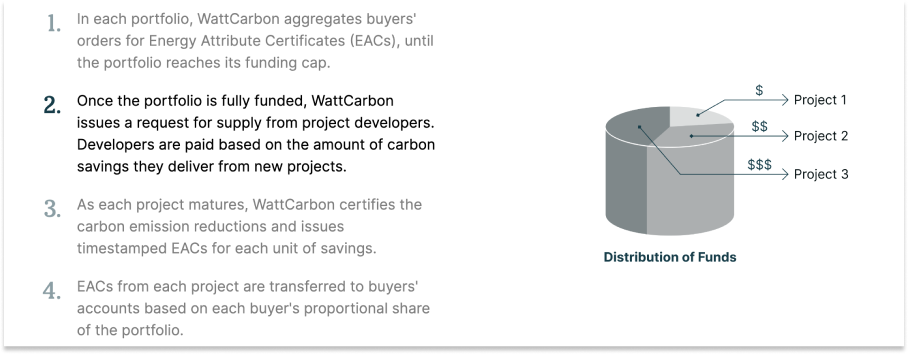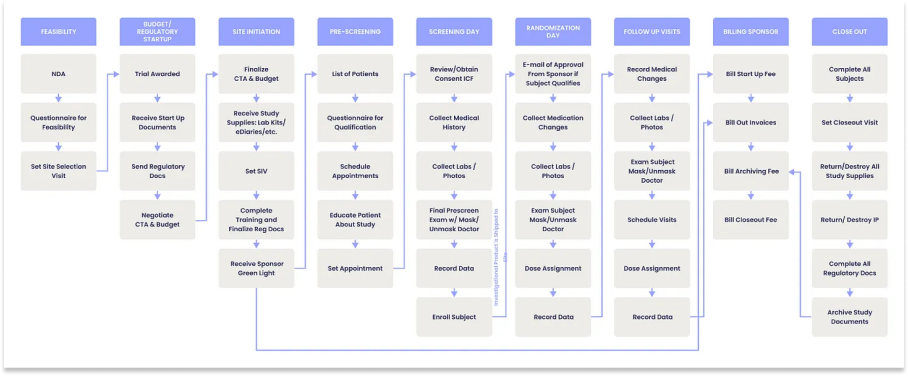Weekly Dose of Optimism #54
The Float, Cancer Drugs, WTF Happened in 2023, Nuclear Importance, WattCarbon, Vial
Hi friends 👋,
Happy Friday and welcome back to our 54th Weekly Dose of Optimism.
As of today, the jury is still out on the LK-99 superconductor, with the probability at 39% on Manifold and 33% on Kalshi. But while we were sleeping, Varda’s Andrew McCalip made the rocks float, the first replication in the US.
The samples still need to be tested, and it could be a while before superconductivity is confirmed. Even McCalip said he “Feels like he knows less than before.” So let’s hold our horses. But it does seem to match the results of a Chinese replication posted to arXiv yesterday. Whatever the outcome, awesome to see Andrew make the rock float in his spare time!
Plus, while we await confirmation, the research community decided to drop another bomb on us: a cancer killing oral drug.
Let’s get to it.
The Weekly Dose is brought to you by…… Pesto
We love a good geo-arb here at Not Boring and Pesto offers one of the best opportunities market! Pesto is the easiest way to recruit and hire high-quality developers in emerging markets like India, Brazil, and even parts of Europe. Through its plug-and-play platform, you can quickly source, recruit, and hire affordable top-tier developers. Pesto wades through the noise so you don’t have to.
Pesto becomes your local team to:
Source the right talent for your company
Recruit and match developers to meet your needs
Hire based on local salaries and regulations
Pesto moves fast – you can go from demo to developer in less than two weeks. The platform is already used by dozens of enterprise clients and startups like Alloy, Pulley, and Snorkel AI to scale their engineering teams.
Give them a shot & enjoy a 25% discount on your first hire when you mention "Not Boring".
(1) Small molecule targeting of transcription-replication conflict for selective chemotherapy
Gu et al in Cell Chemical Biology
According to a new paper published this week, City of Hope researchers have developed an effective and safe oral therapeutic for slowing and killing a variety of cancers. You can read the full press release here.
The core challenge with cancer drugs is somehow killing the cancerous cells without killing the normal cells, too. The magic here is that the PCNA (Proliferating Cell Nuclear Antigen) that acts as scaffolding in the DNA replication process was found to be an isomer in cancer cells, meaning that it has the same molecular formula as in normal cells but a different chemical structure.
That means that the researchers were able to develop a small molecule drug that can interfere with PCNA in cancer cells but not in healthy cells, stopping the replication and thus the spread of the cancerous cells. The drug killed 100% of solid tumors across 70 cancer types in vitro and in animal models.
There’s a few things you need to know here:
It’s still early: Phase 1 trials are getting underway, and even if proven safe and effective, we’re likely a few years away from widespread adoption. FWIW, Manifold currently has its legitimacy at 35%.
Safe with Low Side Effects: According to the paper, the drug has few if any side effects. It has a therapeutic index (ratio between the dose that can help you versus the dose that can harm you) of 6, which is fairly good for a cancer drug.
Slows Tumor Growth: The drug slows tumor growth on its own or with a combination of other therapeutics.
For those keeping score at home, in the past 10 days we’ve gotten a (possible) room-temperature superconductor and now a safe and effective cancer killing drug. We are so back.
Packy McCormick for Not Boring
At the same time, we’re in a period of technological acceleration. We talk about it all the time here: AI finally works, the economics of space pencil out, fusion startups are making progress, renewable energy is booming, and now we might even get room-temperature superconductors. Optimism shapes reality, and an optimistic foundation is necessary to leverage instead of impede the benefits of these technologies.
We are so fricken back. And we even thought this before we found out about this new cancer killing drug. Now we can add that to the list.
About 14 months ago, Packy laid out his (and Not Boring’s) worldview in a widely-shared essay titled Optimism. At the time, things seemed bleak; raging inflation, a looming recession, the war in Ukraine, and a washing away of ZIRP-fueled tech momentum. To me, and many folks out there, it felt like a weird time to be overly optimistic.
Flash forward 14 months and we’ve gotten:
AI that finally works
A booming renewable energy industry
Q>1 fusion reaction
Quantum computing milestones
Potential room-temperature superconductor
That’s just a short list of the >250 accomplishments we’ve shared in the Weekly Dose of Optimism over the last year. Outside of this little newsletter we write, we’re sensing that the winds are shifting. Pessimism is out and optimism is in.
(FWIW, I edit all of Packy’s essays. I’d say 50% I enjoy, 40% I really enjoy, and 10% have me running through a wall. WTF Happened in 2023? falls in that last category.)
(3) Ensuring U.S. Leadership in the Critical and Emerging Technologies of the 21st Century
Josh Wolfe in front of The Select Committee on the Chinese Communist Party
Josh Wolfe, a co-founder and managing partner at Lux Capital, testified in front of Congress this week on the importance of American leadership in critical and emerging technologies. As mentioned above, we’re experiencing breakneck progress in a bunch of these fields right now — everything from AI, to biotech, to quantum computing. All of this work is important and America should strive to be the place where that innovation happens and where the world’s brightest come to do that work.
Wolfe also called to attention the critical importance of American leadership in nuclear energy, an area in which he believes the U.S. has fallen behind China in recent years. While the number of nuclear reactors in the U.S. decreases, China is building up capacity quickly. And more importantly, they’re exporting this technology and know-how to the developing world — regions like Africa and Latin America, that desperately need affordable sources of energy to keep up development. In doing so, China is building up these regions’ dependency on them for decades to come.
Sometimes, it takes competition to snap out of complacency. America’s heating rivalry with the CCP may be the push we need to make smarter decisions on immigration, nuclear energy, and technological leadership where it counts.
(4) This Bay Area startup will help steer billions of dollars toward clean energy investments
Patrick Sisson for Fast Company
WattCarbon buyers would invest money in a fractional share of a project portfolio—electrifying lower-income buildings in a specific neighborhood that otherwise wouldn’t get the investment, installing solar panels in a region with coal-powered utilities, or subsidizing the deployment of fossil-fuel-free appliances, for example. Those funds would then be released to the supplier to help pay for the project, including staff and equipment.
Not Boring Capital portfolio company, WattCarbon, got some very nice ink in Fast Company this week for its decarbonization marketplace. Through WattCarbon, buyers invest in projects that speed up electrification, have a measurable impact, and show clear progress toward cutting emissions. It’s in some ways similar a carbon-offset marketplace, but for the built-world.
Carbon offset schemes have come under scrutiny in the last couple of years, where companies can invest in projects like tree-planting, a long-term, work-intensive, and hard-to-measure solution. In contrast, the types of projects WattCarbon funds help directly avoid future emissions. The company is starting with decarbonizing buildings. According to the Brookings Institute, decarbonizing buildings will eliminate 40% of annual GHG emissions, enough to meet the goals of the Paris Climate Accords.
Decarbonizing the built world is a tall task, but just the type of task we like funding at Not Boring Capital and writing about in the Weekly Dose.
(5) Vial: Reimagining Clinical Trials
By Elliot Hershberg in Century of Biology
If we don’t think we can genuinely make a dent in treating nearly all diseases by the end of this century, we aren’t taking ourselves seriously. There are still enormous challenges to tackle, like inventing new drug delivery approaches and solving the manufacturing bottleneck for medicines, but this is where great scientists and engineers shine. A broader problem looms:
Do we have the infrastructure to test all of the new medicines we’re inventing?
Packy here. I’m biased Elliot is part of the Not Boring family, but his piece this week on the clinical trial startup Vial was one of the best startup deep dives I’ve read in a long time. It had everything: nuanced understanding of incentives, a bold vision to tackle a hard problem, smart strategy, and Kanye lyrics. It also had one of my favorite things to see: startup veterans applying their experience to Good Quests.
Vial co-founders Simon Burns and Andrew Brackin came from outside of the healthcare industry, identified clinical trials as a major bottleneck with the right incentive structure to be fixable, and doggedly mapped out the whole process (seen above). Then, they digitized and automated the whole thing, turning it into their first product: TrialOS, with the goal of driving a 10x improvement in both the cost and speed of clinical trials. It’s already working to the tune of tens of millions of dollars in revenue.
Now, they’re launching their second act: Battery Bio, “AI-POWERED HYPER SCALABLE BIOTECH.” With Battery, they’re vertically integrating the drug development process and leveraging their advantage in trials to “test dozens, or even hundreds, of new medicines in parallel.” With Battery, Vial aims to launch over 1,000 programs on the platform, an order of magnitude more than even Merck. It’s early, but there are already 21 programs moving towards trial launch.
Vial is a textbook Hard Startup: instead of complaining about the cost and speed of clinical trials, they’re solving the problem themselves, and then vertically integrating to take advantage of a world of cheap, fast clinical trials and software-led drug development. It’s hard not to be optimistic in the face of that scale of ambition.
That’s all for this week. We’ll be back in your inbox on Tuesday.
Thanks for reading,
Dan + Packy









Great stuff Packy & Co. Always enjoy the blog. I think you're on to something, pessimism is on the way out, optimism is the next wave. I hope. I recently wrote a White Paper referring to excess Negativity Bias in financial markets and everywhere else. 15 minute read. Check it out:
https://kensingtonami.com/white-paper-negativity-bias-in-the-age-of-a-i/
Thanks!
Ben
2023 is the 4th year in a row where nobody can make any sense of the economy or the stock market. I think a lot of folks are unwilling to be optimistic, because uncertainty is scarier than negative news. What a crazy way for us to be, but it do.